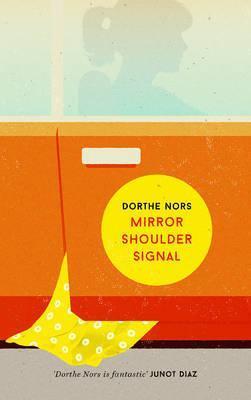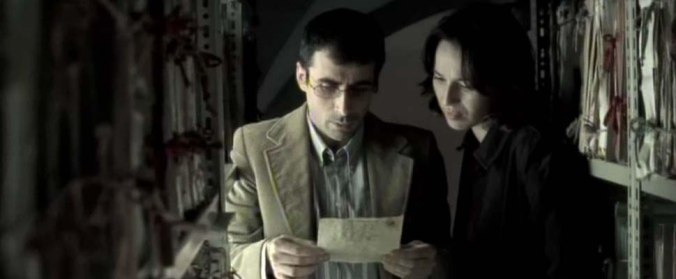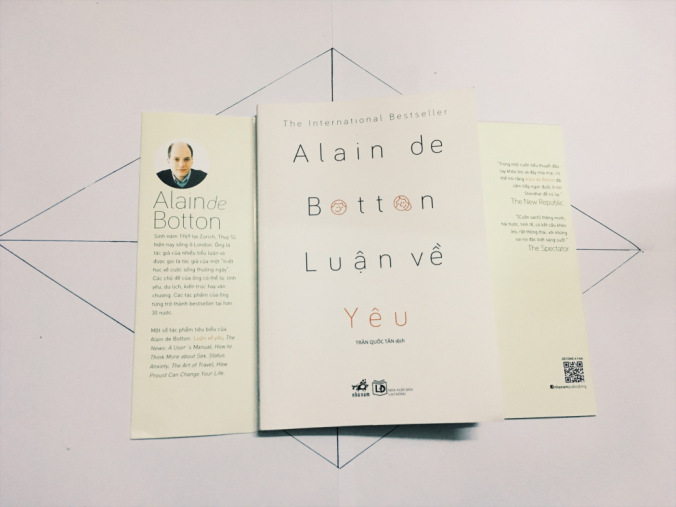Critical reviewers seem to adore her work on the whole, but the incredibly mixed reviews of Dorthe Nors’ Mirror Shoulder Signal which I have seen around the Internet intrigued me far more than the gushing positives. Let us begin with some of the more favourable reviews. Daniel Woodrell writes: ‘To read a Dorthe Nors story is to enter a dream and become subject to its logic’, and the Independent follows a similar thought pattern, stating: ‘Her words whip along, each idea cascading into the next: it’s like having a window into someone’s thoughts’. The novel – or, rather, novella, as it runs to just under two hundred pages – which was first published in Denmark last year, has been translated from its original Danish by Misha Hoekstra. 
Mirror Shoulder Signal follows protagonist Sonja, a translator living in Copenhagen. She has finally decided to take driving lessons, now that she can afford to, and part of the novel takes place within the space of the car in which she is practising. The novella opens when Sonja and her driving instructor, Jytte, are getting used to one another in the rather stressful setting: ‘It’s difficult to maintain boundaries in an automobile. When you’re a driving student, you have to relinquish free will…’.
The novella flits back and forth from the present day to Sonja’s childhood memories. Whilst I ordinarily find that this technique works well in building up a character in a novel, or a film, Sonja feels relatively one-dimensional. At first, she comes across as a promising construct, but this is somehow lost. Her experience with the city was certainly the more interesting part of her story for me: ‘… the city was overpowering. The sounds, the faces, the colors all seemed chaotic, and she remembered how she’d lain in bed with earplugs and a blindfold. Molly lay in the next room and blossomed, but Sonja had to switch off. She turned down that knob in her brain that let her take in the world at full blast, and once the knob had been turned almost all the way down, the heath, the tree plantation, and the sky overhead seemed empty of content.’ Sonja is the undoubted focus of the novella, but it does not feel as though we ever really get to the core of her; she does not have enough substance to sustain the whole.
The plot within Mirror Shoulder Signal is not the most interesting, and nor does it have much impact. There are some surprising moments from time to time, and Nors occasionally presents glimpses of character which would not be out of place in a Katherine Mansfield story, but the matter-of-fact prose and way in which loose ends have not been very well pulled together let the whole down immeasurably. Perhaps if more Danish history and culture had been included, the city would have come to life, and added a sense of immersive reality to the whole. As it is, the small details of the political climate which have been invited feel a little too brief to satisfy.
Nors’ short stories have been highly praised, and, with hindsight, would have perhaps been a better introduction to her work than Mirror Shoulder Signal proved to be. At first glance, it appears that it would fit wonderfully upon the Peirene Press list of short, sharp translated fiction, but there is not quite enough depth to it to match any of their other titles. Mirror Shoulder Signal does not pack a punch in any way; in fact, it is almost profoundly disappointing in its execution. The third person perspective which has been used throughout adds a detachment to the whole, and despite Hoekstra’s fluid translation, it does not live up to its potential. The pacing is off too, and the whole feels a little plodding from its outset.
The real joy in Mirror Shoulder Signal is in some of the more poetic sentences, particularly those which deal with the art of translation, such as the following: ‘Language is powerful, almost magic, and the smallest attention can elevate a sentence or be its undoing.’ Every now and then, there was a sentence such as the above, or an idea, which really piqued my interest, but these threads were soon lost, unfortunately replaced by dullness and predictability.
Purchase from The Book Depository
Advertisements Share this:




